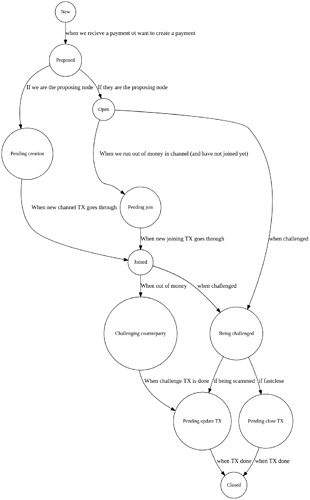One of the more difficult problems with paying for bandwidth in cryptocurrency is that cryptocurrency transactions themselves require internet access resulting in a bootstrapping problem.
This thread is for the discussion of handling the light client and bootstrapping issues. There are a few primary questions here.
- Do we forward transactions we receive over cleartext and not open tunnels until the channel is opened? I’ll deem this the cooperative light client method.
- Do we open channels immediately and allow some amount of debt to be run up without an open channel? Allowing the light client to send it’s own transaction. I call this the free trial method.
The next major set of questions are
- During channel opening how do we make sure the costs of opening the channel are split equally? This might just be a property of the smart contract. In the event that they are not equal bad actors could game the system to save a few pennies at the expense of peers.
- How do we handle channel transition? The situation where there is a active channel waiting to be closed and a new channel waiting in the wings needs to be handled well.
